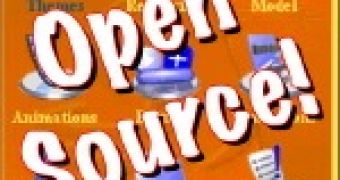Yesterday, Sun Microsystems released the source code for the Lightweight User Interface Toolkit (LWUIT) under the GPL+Classpath Exception. The company took this step in order to combat the fragmentation trends in the mobile development world and to enable developers to create user interfaces that would behave the same on all devices running the Java ME platform.
LWUIT was presented at the JavaOne Conference earlier this year, and was distributed as a binary library and additional tool. Sun also announced at that time its plans to make LWUIT open source by summer.
Regarding the choice in licensing, Senior Technologist at Sun Microsystems Terrence Barr thinks "it provides the benefits of open source innovation and collaborative development while offering a risk-free path to adoption by commercial products - a model everybody should feel very comfortable with." Architect Shai Almog further explains that this choice "allows binary linking with the application (unlike the LGPL) thus allowing you to build and obfuscate your own proprietary applications."
Along with this change, the LWUIT code was added to the java.net repository, which has several benefits. One of them is that bug fixes will be directly committed to SVN, instead of releasing new binary packages. It also enables developers to contribute to the project by submitting code using the incubator project. However, this does not mean the end of binary releases, Mr. Almog pointing out that "we still intend to offer binary drops under the current binary license to give you a choice between two licenses and ease your interaction with the legal department in your respective corporation."
The source code release also brought improvements and a new binary drop that features live drag and drop support for components in layouts, component z-ordering support, new absolute/scalable layout allowing arbitrary positioning, SVG Image support using JSR 226, and other performance enhancements and fixes.
Mr. Barr explained that the success of the Toolkit, which is able to run on CLDC1.1 MIDP2.0/CDC PBP/SE, has surpassed their wildest expectations. "The LWUIT project has seen an explosion of activity, and blogs and articles around the web have given LWUIT enthusiastic reviews," he said, and this attracted the attention of big commercial companies, which are now planning to use LWUIT in their new projects.

 14 DAY TRIAL //
14 DAY TRIAL //